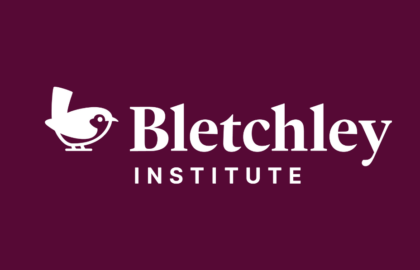How to find a job you love (without having done it before)

Wondering how to find a job you love if you haven’t done it before? 1. Investigate 2. Reflect 3. Follow Up
This article on how to find a job you love without having done it before is part of the Coaching Collective series, featuring tips and expertise from Flatiron School Career Coaches. Every Flatiron School graduate is eligible to receive up to 180 days of 1:1 career coaching with one of our professional coaches. This series is a glimpse of the expertise you can access during career coaching at Flatiron School.
When you were a kid, what did you want to be when you grew up? It’s interesting how children often select a career they’ve observed someone special in their life doing. Common responses often include teacher, firefighter, doctor, or nurse. Whether it’s the cool uniform, the love of learning, or wielding a stethoscope, there is something we observe as being fun or valuable that yields our answer.
As we grow up, our exposure to new information and hobbies may expand our career interests, whether that’s through school, sports, or the good ol’ internet. Exposure to the great wide world and all the interesting careers that exist may be enough to select the type of job you target, but in order to acquire the job, employers require proof that you know what you’re doing – and often for good reason! I don’t know about you, but I prefer my doctors to have the credentials necessary before receiving treatment. Yet medical, academic, or even legal credentials come with a high price tag. What if you get to the end of your credential-collecting journey and realize the career isn’t what you hoped for? The cost of being wrong can be quite expensive.
An Alternative Route To Career Happiness
When considering new career paths, it can be alluring to become a skill collector. With free resources and online tools available at every turn, it’s an incredible time to learn all kinds of things. But without having done the actual job itself, how can you really know if a career is right for you and that you’ll enjoy it? Spoiler alert: you can’t. However, you can gather critical information to help you make the most informed decision before investing one dollar more.
Investigate
While changing careers tends to involve investment in skill-building, before paying for tuition, look to your network as a way to research any number of jobs, careers, and industries that pique your interest. Become an investigative reporter, preparing your questions and documenting your findings from the conversations you hold. Below are some questions to get you started.
- What was your first job ever? (A great icebreaker!)
- Tell me about your journey to become a <job title>.
- Were there other careers you were considering while you were studying <insert field from school/college/university/training program>? Why did you decide to go the route you did?
- If money was no issue, what career would you choose for yourself?
- What do you enjoy the most about your current role? What do you like least or wish you could change?
- What do you want to do next in your career? Or are there other careers you still want to pursue?
- How much time did you dedicate to learning the skills required to land your first role in this field?
- Would you recommend someone like me to pursue this career?
Reflect
Apply this approach to a handful of careers that interest you and compare notes. If the answers energize you, then that’s a great clue to keep researching individuals in the same field. If the answers frighten or drain you, it could be a sign to pivot or pull back. Either way, exploring how you feel and reflecting on the conversations will help you hold up a mirror to yourself. Does this sound like me? Use their responses to inform your next steps.
Follow Up
The magic of the investigative reporter approach is in the follow-up. Imagine you’ve spoken to 10 individuals in the field of interest, and you’ve now enrolled in a program to acquire the skills you need. Reach back to each individual and send them an update.
“I wanted to send an update from our conversation X months ago. After we spoke, I decided to enroll in a Cybersecurity program and am now in my first week. We’re already learning about xyz – and while it’s been intense learning at a fast pace, I’m having a blast. Thanks again – our chat really helped solidify for me how much I would enjoy the work. I’d love to stay in touch!”
Multiply these short updates across the folks you met and send them at the beginning and end of your program. These updates will illustrate your follow-through (a skill unto itself!) as well as provide the incredibly important “proof” employers all seek. When you graduate, you can send your updated resume along – that is, unless they request it from you first!
By starting the networking process early as a way to research and verify your interest and aptitude, you’re setting yourself up for early job searching success and career happiness, not to mention some great peers in your new chosen field that could benefit you your whole career long.
About Lindsey Williams
Lindsey Williams is the Senior Manager of Coaching at Flatiron School. She has more than 15 years of experience in the EdTech spaces and has held a variety of roles from Recruiter and HR to Campus Director and Training Director
Disclaimer: The information in this blog is current as of September 6, 2023. Current policies, offerings, procedures, and programs may differ.



